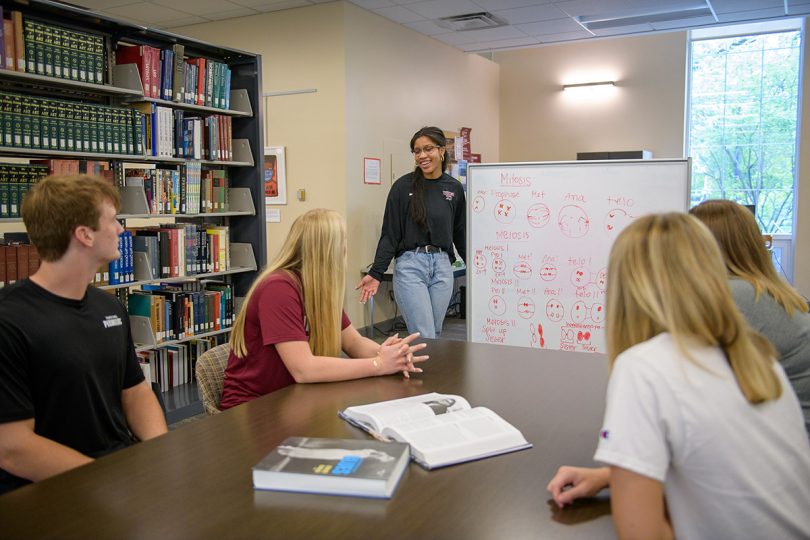
Transylvania University has combined its centuries-old tradition of excellence in teaching health care related fields with its liberal arts value of interdisciplinary learning to create a new minor: medical humanities.
Students on a wide range of career paths can incorporate the minor into their studies beginning this fall. It will give these Pioneers an edge in graduate and professional school programs as well as in the workforce.
“More and more medical schools are now expecting their students to be cognizant of the cultural, social and political dimensions of health related matters,” professor David Kaufman said. Courses required for professional programs are mainly science based, so a background in medical humanities will give them a competitive advantage when applying. And they’ll be better practitioners once they graduate, Kaufman added.
Already more than 90 percent of Transylvania students recommended to medical school are accepted.
Besides those going into medicine, others benefiting from the new minor include students preparing for journalism, counseling, politics and many more fields. Someone planning on a political career would benefit from the minor because, for instance, if they’re crafting a policy related to biomedicine, they would need “to understand the complexities of health, healing and suffering,” Kaufman said.
The medical humanities field incorporates insights from the natural sciences with the humanities, arts and social sciences to help us better understand the human condition. While the number of baccalaureate programs in the field are growing across the country, there haven’t been any in Kentucky, according to faculty who proposed the new minor.
Transylvania already offers many courses related to medical humanities, with more possibly on the way. Other resources at the school include pre-health and pre-professional clubs and the Monroe Moosnick Medical and Science Museum, which provides students with opportunities for historical research.
In addition to the new minor, Transylvania recently added new international affairs tracks: Students now can choose between diplomacy, development and comparative cultures.

